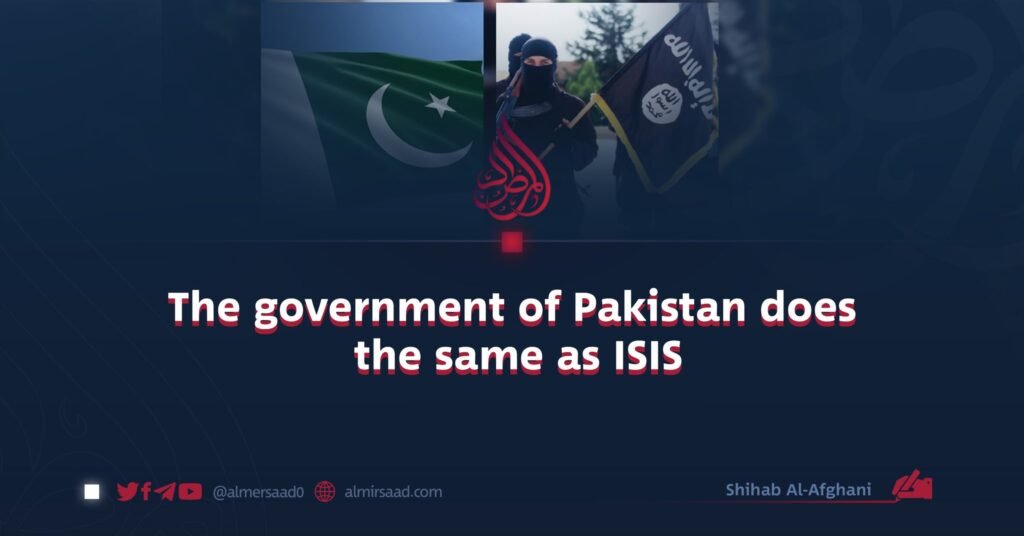Shihab Al-Afghani
The Pakistani government has initiated a campaign to detain Afghan refugees under the guise of counterterrorism measures. Several videos have surfaced on social media platforms, depicting Afghan children and female patients who have been detained by Pakistani authorities and are spending nights in confinement without regard for their human rights.
These measures by Pakistani authorities were instigated after Pakistan’s security agencies failed to ensure the safety of their citizens. Consequently, they resorted to an ineffective strategy of detaining and expelling individuals based on unfounded allegations.
This conduct by the government of Pakistan mirrors that of ISIS, which enforced forced migration on the inhabitants of Nangarhar province. ISIS militants used to intimidate the residents of Shirzad, Khogyani, and Shinwari districts in Nangarhar, warning them, “If you prefer death, remain in your homes.”
While Pakistani officials have taken the lead in this endeavor, there exists a subtle distinction in that the flags of the two authoritarian entities differ, yet their actions are equitable. Regrettably, Pakistani authorities are now engaging in activities such as killings, kidnappings, and coerced migrations, akin to what ISIS was responsible for.
The root cause of insecurity in Pakistan does not lie with Afghan refugees but with corrupt officials who have exacerbated the country’s economic, political, and security landscape.
Such is the extent of corruption that key perpetrators have managed to evade accountability, with their cases likely to remain unresolved until their demise, leading to the eventual dismissal of their charges by the courts.
